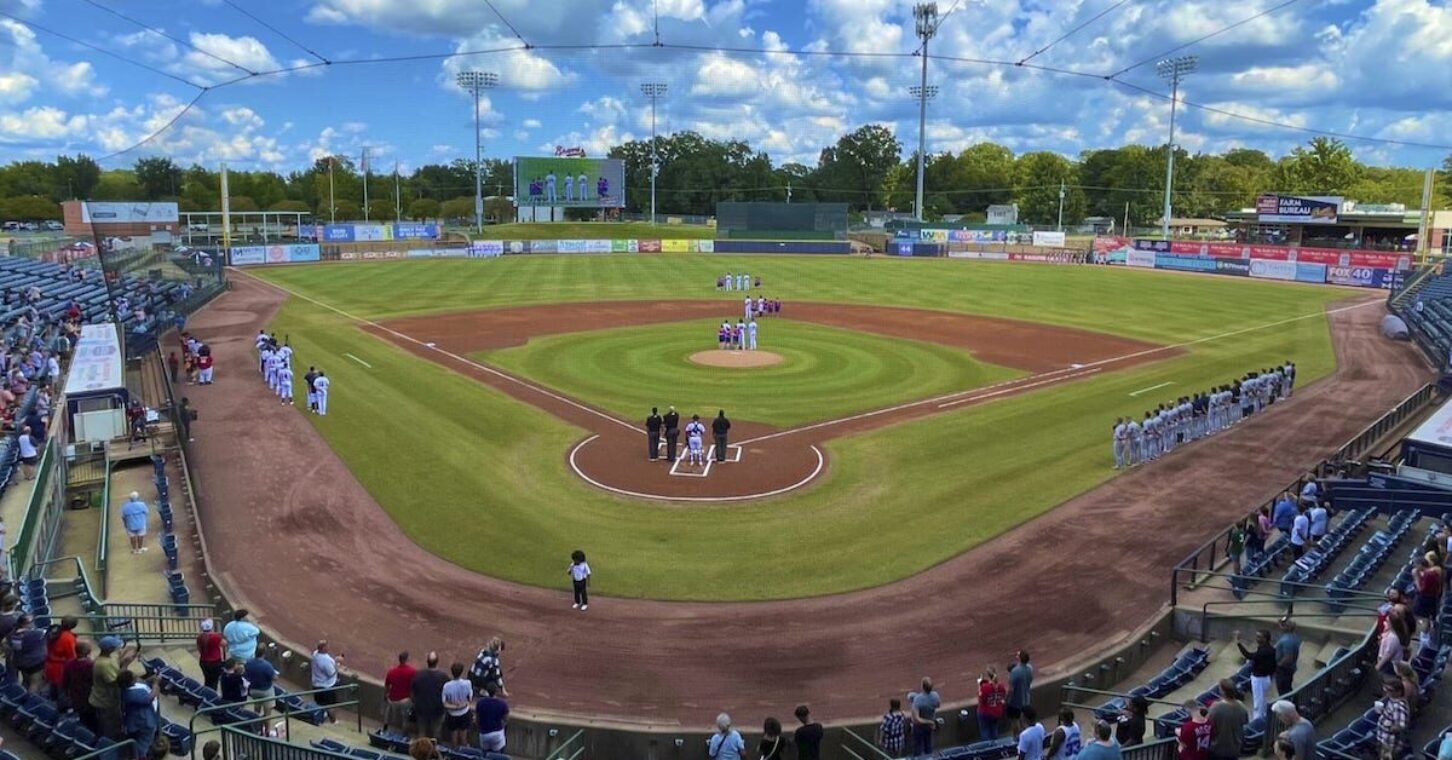
In 2004, my home state of Mississippi was enthusiastic over the news that the Atlanta Braves’ Double-A affiliate was moving to the Magnolia State. The state had lost their last minor league baseball team in 1999.
“On behalf of all Mississippians, we are very excited to be affiliated with such a world class organization,” former Mississippi Gov. Haley Barbour said at the time. “Having the Braves’ Double-A affiliate located in Pearl is a home run for this state.”
And he was right. It seemed like a natural fit. The state of Mississippi is very much part of the larger Braves Country that covers most of the Southeast. And Pearl, a working-class Jackson suburb and short flight away from Atlanta, was very welcoming. That is, Pearl was welcoming to the tune of about $28 million for construction of Trustmark Park, the new home for the Mississippi Braves. This was a portion of $78 million in bonds to finance construction around the stadium, including a Bass Pro Shops.
The Braves Double-A affiliate came to Mississippi via Greenville, South Carolina. At the time, the city of Greenville couldn’t – or wouldn’t – match Pearl’s offer. The Braves would essentially take undeveloped swamp land and turn it into a baseball field and retail destination. The city envisioned the Braves as the economic center of the growing suburb. And clearly dug deep into their pockets, or taxpayers’ pockets, to make it happen.
This seemed like a perfect fit. Until this past Tuesday when the Mississippi Braves announced that this – their 20th season in Pearl – will be the last before heading to Columbus, Georgia.
It’s a predictable pattern for those paying attention.
Today, attendance for the Mississippi Braves sits at 29th out of the 30 Double-A teams. The only time you’ll find anything resembling a sellout at Trustmark Park is when in-state rivals Ole Miss and Mississippi State play in the annual Governor’s Cup.
Because of that, Trustmark Park and the Mississippi Braves were never the money maker taxpayers were originally told they would be. The city of Pearl regularly had to dip into their general funds to cover debts owed on the ballpark and neighboring shopping center because the revenue streams never matched the promises of economic development studies. They are also still making annual payments through this year to site developers.
In 2015, Moody’s, a bond credit rating business, issued a quadruple downgrade of Pearl’s credit rating to “junk bond” status. Ironically, the city received a positive rating for the first time in eight years – right as the Braves announced their exit.
But when it came to keeping the Braves, there probably wasn’t much Pearl, or the state of Mississippi, could have done. The days of having Braves franchises throughout the Southeast appears to be a thing of the past based on recent history.
Enter Columbus, Georgia. Reports began to surface a couple weeks ago that the city about two hours south of Truist Park was making efforts to lure the Mississippi Braves to the Peach State. Columbus voted to explore a $50 million bond to make upgrades to Golden Park, a nearly 100 year old stadium. The park last hosted an MLB affiliated team in 2008.
Columbus promotes the park as part of a larger complex that also houses a city skating rink, a civic center, a football stadium and a skatepark. Historians may remember that from 1916 through 1958, save for one year, the Georgia-Auburn football game was annually played at Memorial Stadium in Columbus.
With this move, all of the Braves affiliates will be located in Georgia. And the Braves will now have a presence south of Atlanta.
When the Braves moved from Greenville to Pearl, it wasn’t the first time a minor league team left a city for money. It wasn’t even the first time the Braves had done it. Two years earlier their Single-A affiliate moved from Macon to Rome, with the help of $15 million. Their Triple-A affiliate received $64 million from Gwinnett County to move from Richmond, Virginia to Lawrenceville.
Across the state line, we’ve seen Alabama taxpayers in Birmingham, Montgomery and Madison, a Huntsville suburb, spend more than $100 million on three stadiums in the past decade. For that money, they at least got cool nicknames like Trash Pandas.
While we don’t want to make bold predictions, it’s safe to say this won’t be the last time a minor league team chases government funding.
Because an ability to generate revenue or pay off for taxpayers doesn’t seem to matter. Maybe Columbus will be different.